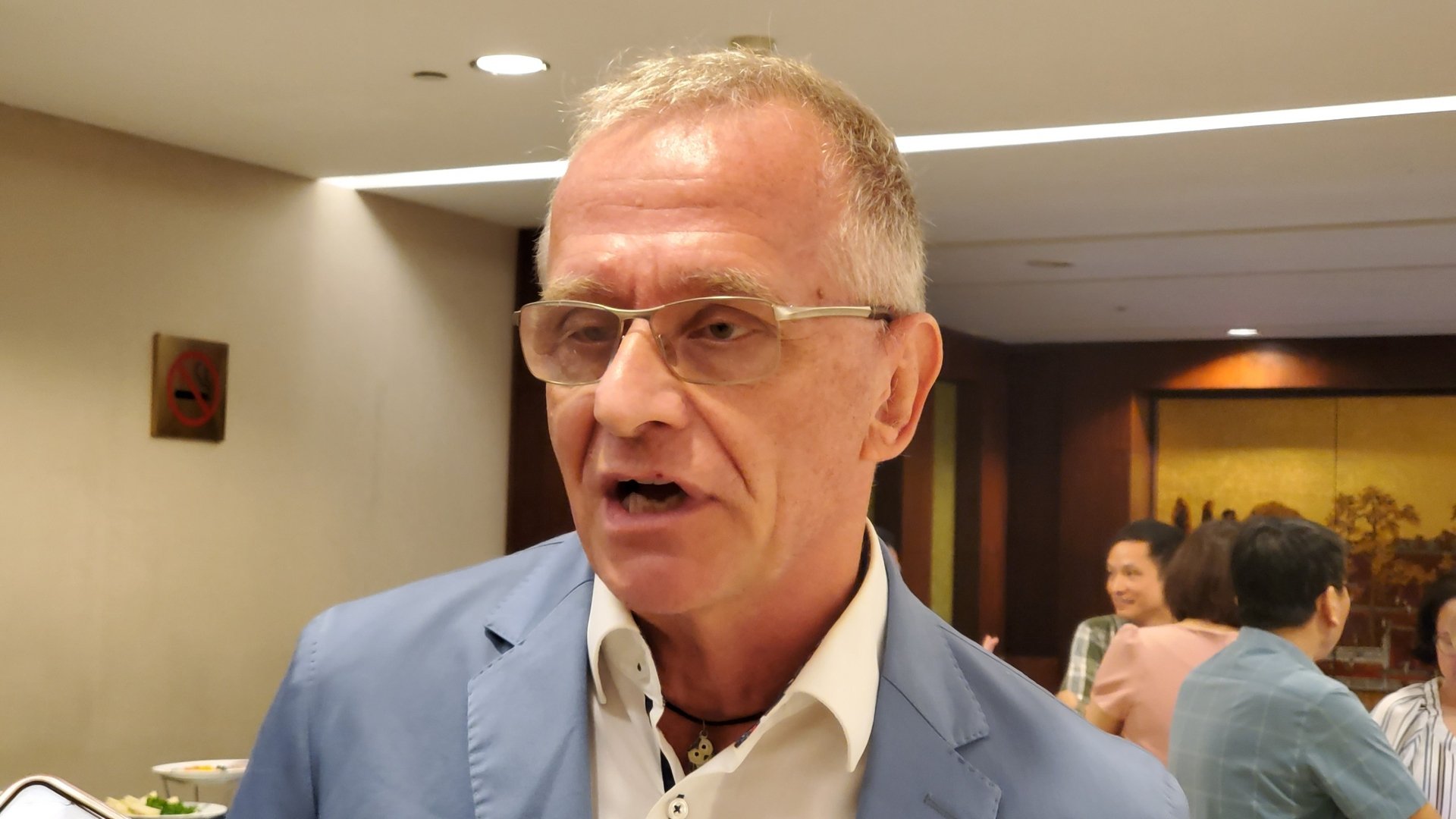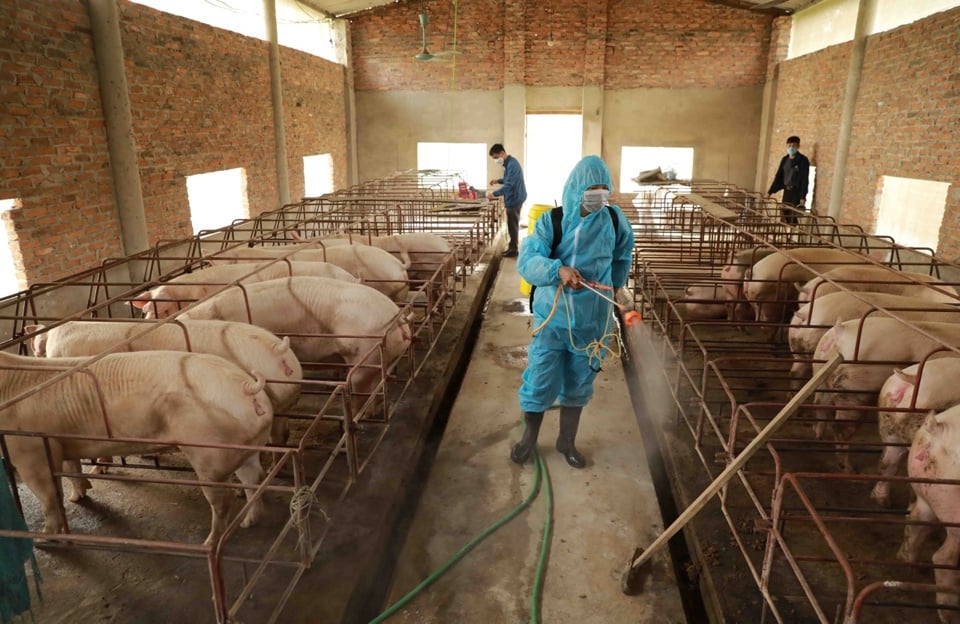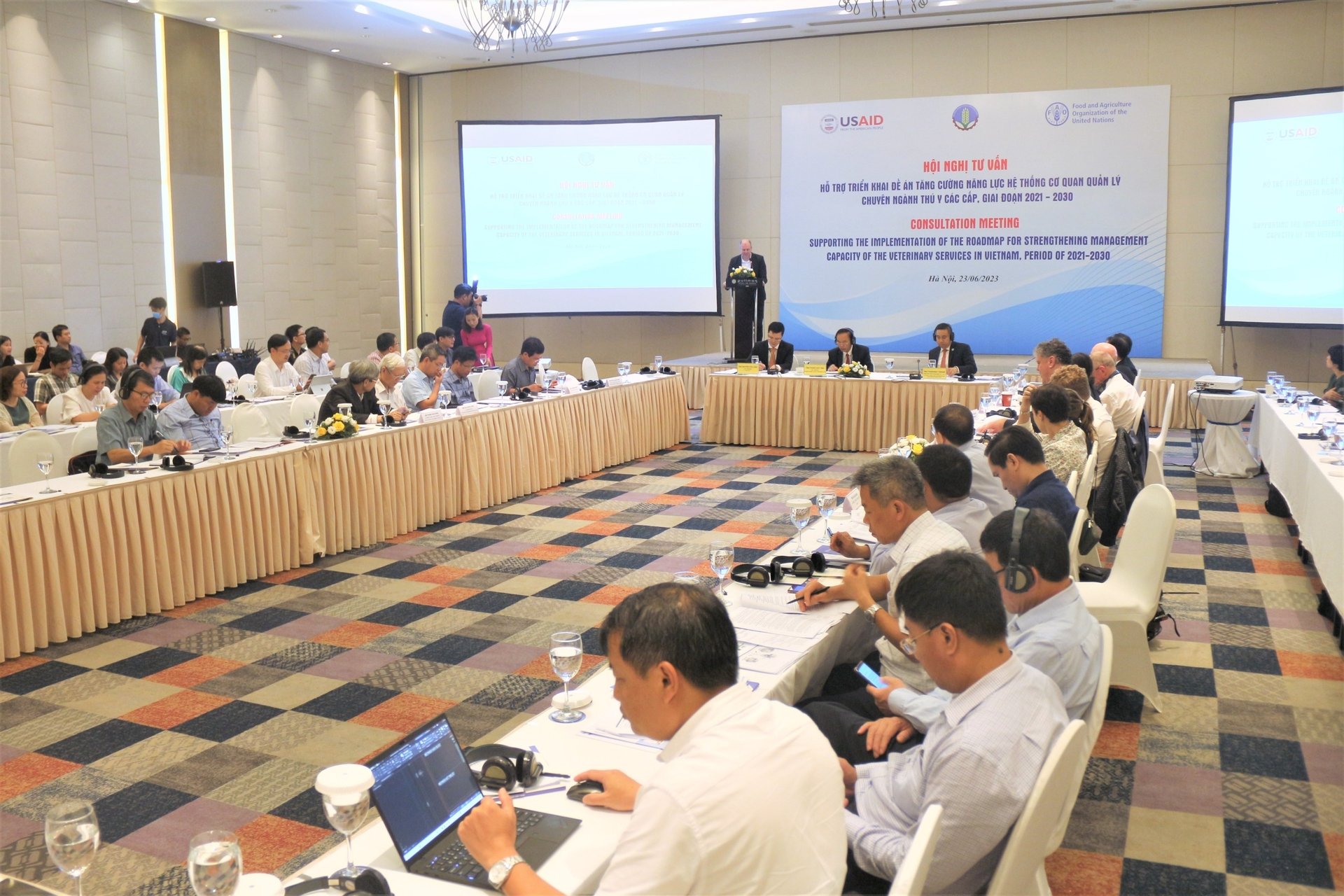June 18, 2025 | 08:04 GMT +7
June 18, 2025 | 08:04 GMT +7
Hotline: 0913.378.918
June 18, 2025 | 08:04 GMT +7
Hotline: 0913.378.918
ILRI, a member of CGIAR, works in close collaboration with MARD and national partners on livestock research in Vietnam.
Fred Unger, the regional representative at ILRI for East and Southeast Asia shared that the organization has implemented research in Vietnam that focus on solutions for the sustainable development of the livestock system while ensuring the livelihoods of small-scale farmers in the country.
The initiatives of ILRI implemented in Vietnam aim to boost Vietnam's livestock industry by providing research evidence with emphasis on food safety and animal health in traditional livestock value chains.
It aims to promote the development of the sustainable and safe animal sourced food chain through the One Health approach and market-based solutions.
He expected to maintain and strengthen their partnership with government agencies and research partners in Vietnam through ongoing CGIAR es., initiatives on One Health and sustainable animal productivity.

Fred Unger, the regional representative at ILRI in East and Southeast Asia spoke to VAN reporters.
ILRI and other CGIAR members are collaborating with partners in Vietnam to conduct extensive research aimed at finding the most practical and effective solutions for the country's animal husbandry and veterinary system. The goal is to coordinate efforts and provide support to ensure the success of these crucial initiatives.
In the sideline interview with VAN, Unger stated that Vietnam has huge small-scale processing and traditional retail sectors which can pose a challenge for the veterinary system.
“I think what is important is that you address the needs of all sectors including the small-scale sector. Solutions have to be tailored and specifically address the situation of each sector including consideration of livelihoods aspect the latter particular prominent in the small-scale sector”, Unger shared.
He believed that it is of major importance to further improve the livestock production of Vietnam and by this ensuring the livelihoods of millions of families. Solutions have to be affordable and be developed in a participatory process with all sectors.
As stated in today’s consultations the Vietnamese Government has recognized the importance of the small scale, and medium sectors and efforts are made to find strategies and sustainable solution including a strengthened veterinary sector.
ILRI and CGIAR is committed to support the Vietnamese government in this process in collaboration with national and international research partner and organisations.

Unger found that Vietnam has very huge small-scale processing sectors of livestock, and a lot of things were sold in the traditional market.
Mr. Ronello Abila, the Southeast Asia sub-regional representative for the World Organization for Animal Health (WOAH), formerly known as OIE, has expressed regard for the Vietnamese veterinary system's capabilities. He is confident that the system can adequately fulfill the demands outlined in the Scheme on Strengthening the management capacity of Vietnam's services in Vietnam, from 2021 to 2030.
In November, the World Organization for Animal Health (OIE) will be establishing a delegation to assist with the capacity assessment of Vietnam's veterinary system, including both terrestrial and aquatic evaluations. This effort is part of the PVS Evaluation Follow-up program.
Vietnam has been striving to expand its export of livestock products globally. However, the country is yet to establish a disease-free zone that meets the standards set by the World Organization for Animal Health. To boost the export of livestock products, it is imperative to construct a pandemic-free area.
The OIE has been in communication with Vietnam through various consultations, meetings, and workshops to provide technical discussions on international standards. Vietnam is striving to adhere to global standards to create areas free of diseases. According to the speaker, they are currently involved in guiding and implementing disease-free zones or founding in Vietnam while also providing technical assistance.

The “Consultation meeting to support the implementation of the roadmap for strengthening the management capacity of Vietnam's services in Vietnam, 2021-2030” is held on June 23.
As per the OIE representative, it usually takes around 1 year from the submission for the setting up of free-disease areas according to OIE standards. He believed that Vietnam could take it for granted and submit what has been done for the assessment.
The Prime Minister's Decision 414 on the Scheme for maintaining, consolidating, and strengthening the capacity of the veterinary system at all levels has been urgently designated. This is to ensure successful organization, effective management, and maintenance of disease safety in the region. Efforts are underway to develop national capacity profiles and provide guidance to localities and businesses on how to prepare export documents.
Ensuring practicality to meet the requirements of OIE and countries importing animals and animal products is an essential task that involves carrying out supervision, inspection, and organizing preliminary and final conferences to evaluate and discuss solutions for implementation.
The successful implementation of the roadmap to establish a disease-free area for poultry requires not only the efforts of the local government and agricultural sector but also the essential participation of international organizations.

(VAN) According to the Binh Thuan Department of Industry and Trade, in the first five months of 2025, Binh Thuan's dragon fruit export turnover increased by 20.65% compared to the same period last year.

(VAN) EU countries on Thursday gave final approval to new tariffs on fertilizer imports from Russia, a move aimed at cutting off revenue that could support Moscow’s war in Ukraine, despite concerns from European farmers.

(VAN) The working delegation from the Ministry of Agriculture and Environment conducted an important trip to the Netherlands to strengthen strategic partnerships and sustainable development in the agricultural sector.

(VAN) The letter ‘A Plea from the Ocean’ not only evokes emotion but also awakens the human conscience to the responsibility of protecting life on Earth.

(VAN) The Department of Agriculture in South Africa has announced the country’s first mass vaccination of poultry to prevent local birds from contracting avian influenza.

(VAN) Establishment of the Mekong Delta Regional Agricultural Linkage Center, aiming for a closed value chain, deep processing, trading platforms, and international market connectivity.

(VAN) Gia Lai province has recently recorded 460 rare species of animals and plants, contributing to forest conservation and biodiversity planning in the region.